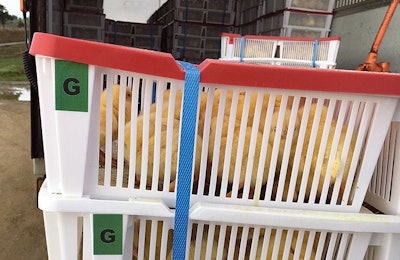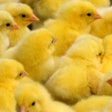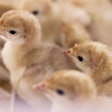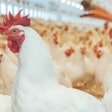
With the recent opening of its new Avian Transitional Facility in New Zealand, Cobb-Vantress is set to take advantage of the growing opportunities afforded by the Asia-Pacific region, the world’s largest poultry market.
Cobb-Vantress’ new 368-acre site in Rontongaro, near Huntley, south Auckland, is equipped with a hatchery, quarantine house, nine rearing houses and 12 production houses, and will supply Cobb genetics to markets including China, Indonesia, the Philippines and Thailand.
Meeting rising demand for chicken meat
The Asia-Pacific region is a rapidly expanding market.
Home to 4.4 billion people, its population is set to grow 20% by 2050. Combined with rising incomes and stable economies, this is leading to an increase in protein consumption in the region – particularly chicken meat.
Cobb’s pure-line complex, which took three years to plan and build and saw an investment of close to US$50 million, began operations in January after its approval by New Zealand’s Ministry of Primary Industries to import live poultry and hatching eggs from approved countries.
In May, approximately eight months after approval was granted, the Facility delivered its first grandparent (GP) package to Bromley Park Hatcheries Group, a New Zealand family-owned business that produces and sells high-quality chicks, and has been a Cobb distributor since 1990. The shipment is is in line with Cobb’s strategy in this region to export high-quality chicks largely to distributors and its own operation in China.
The new facility brings 80 new jobs to the region, with many coming from within the local community, including from the indigenous Horahora Marae community.
“As we have done with other Cobb facilities around the globe, we integrated the local community during the building stage, and now the operational stage,” said Jimmy Chand, general manage of Cobb New Zealand. “This allows us to provide work for the community and ensures our new state-of-the-art facility is functioning to supply our customers with consistent, quality products.”
Low disease-risk point of supply
New Zealand is considered an ideal location for the new site as historically it has experienced lower occurrences of poultry diseases such as avian influenza, and is therefore expected to provide a stable and lower disease-risk point of supply.
For example, when China halted imports of genetic stocks from two of its major suppliers – U.S. and France – because of disease concerns, New Zealand was able to address some of the country's breeding stock shortage.
In addition, the proximity of Cobb New Zealand to many countries in the Asia-Pacific market allows breeding stock to reach customers quickly, which is considered vital for the welfare of the day-old chicks.
Cobb’s biosecurity practices are also designed to reduce the risk of common poultry illness and disease, and operate in combination with vaccinations, regular health screenings and monitoring. Additionally, the company says its employees receive ongoing biosecurity training and internal audits.
As with its other facilities, Cobb also works closely with the poultry industry, state and federal governments and other organizations to prepare for and plan responses to illness and disease.
When the first shipment was sent to Bromley Park Hatcheries Group in May, the new facility was said to have two flocks. The company works with more than 60 distributors worldwide, more than half of which are in the Asia-Pacific region. But Cobb has declined to comment on the number of birds it expects to eventually export from this new facility, or the potential size of each market.
New Zealand has close to 4,500 transitional or containment facilities for quarantining imported goods – including personal effects, pets and new plant varieties – to prevent the importation of diseases into the country. Cobb is the third business to establish avian transitional facilities in the country.

Jimmy Chand, general manager of Cobb New Zealand, said the facility supplies consistent, quality products and was developed and is run with involvement of the local community. (Stephen Barker)

















